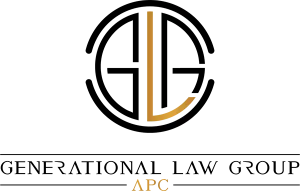Featured Snippet Answer:
In California, NIL (Name, Image, Likeness) rights allow high school and college student-athletes to earn money from their personal brand—through endorsements, sponsorships, social media, and more—without jeopardizing their eligibility. NIL laws provide legal protections but also require athletes to follow specific rules and contracts. Legal guidance is highly recommended.
What Are NIL Rights for College Athletes in California?
NIL rights give student-athletes the ability to profit from their name, image, and likeness—meaning they can now legally sign brand deals, monetize social media, and receive payment for things like public appearances or autograph signings.
In California, these rights apply to both college and high school athletes under specific guidelines, opening up new revenue opportunities for young talent. However, NIL rights also come with legal complexities that require careful navigation.
A Quick History of NIL Legislation in the U.S.
For decades, student-athletes were prohibited from profiting off their personal brand. That changed in 2021, when the NCAA suspended its rules banning NIL compensation, following state-level legislative pressure—particularly from California.
– California was a trailblazer with the Fair Pay to Play Act (SB 206), passed in 2019.
– The act paved the way for other states and the NCAA to follow suit.
– The NCAA now allows athletes nationwide to monetize NIL, but state laws still vary, and California remains one of the most progressive.
What NIL Rights Allow California Athletes to Do
California student-athletes—both college and (in many cases) high school—can now:
– Sign endorsement deals with brands, companies, and local businesses
– Monetize social media platforms (e.g., TikTok, Instagram, YouTube)
– Host or promote training camps or clinics using their name
– Earn money from autograph signings or meet-and-greets
– Profit from podcasts, merchandise, or digital content
There are very few limits—as long as the athlete complies with school, NCAA, and state disclosure rules.
Legal Protections and Compliance Requirements in California
Although NIL rights open the door to new income streams, student-athletes in California must follow specific legal rules:
Disclosure Rules:
– Athletes must report NIL deals to their school or athletic program.
– Some institutions require pre-approval or contract submission.
Contract Considerations:
– NIL contracts must not conflict with team sponsorships.
– Contracts should be reviewed for exploitation clauses, termination rights, and payment structure.
School Limitations:
– Schools may restrict certain industries, such as alcohol, gambling, or adult content.
– High school athletes must check CIF policies before signing any deals.
Common NIL Opportunities and Potential Income
There are several popular NIL paths for student-athletes in California:
– Local business sponsorships (gyms, restaurants, clinics)
– Brand ambassador deals (fitness gear, supplements, sportswear)
– YouTube channels or TikTok content monetization
– Autograph or appearance fees
– Digital product sales (eBooks, training guides, merch)
How Much Can Athletes Earn?
Income can vary widely—from a few hundred dollars to six-figure contracts, depending on the athlete’s visibility and reach.
Avoiding Legal Pitfalls: Why You Need a Name Image Likeness Lawyer
Navigating NIL deals without legal guidance can lead to:
– Signing exploitative contracts with no exit clause
– Losing NCAA or CIF eligibility due to noncompliance
– Missing tax responsibilities on NIL income
– Inadvertently violating endorsement exclusivity
A qualified Name, Image, and Likeness lawyer can help:
– Negotiate fair and legal contracts
– Ensure full compliance with CIF, NCAA, and state regulations
– Protect your long-term personal brand
– Educate families and coaches on what’s allowed
The House Case and Recent Legal Developments
In 2024, the landmark *House v. NCAA* case resulted in a $2.8 billion settlement that fundamentally changed the future of NIL and revenue sharing in college athletics. The House settlement forces the NCAA and its member schools to compensate athletes for a portion of broadcast and media revenue, setting the stage for broader NIL opportunities.
Key Takeaways from the House Settlement:
– The NCAA agreed to pay billions in damages for past NIL restrictions.
– Future athletes will likely receive a share of revenue generated from media rights.
– This ruling puts additional pressure on schools to clarify their NIL policies and build infrastructure for athlete compensation.
For California athletes, the House case reinforces the importance of having legal representation when entering any NIL or revenue-sharing agreement. As the legal landscape continues to evolve, staying informed and protected is critical.
Real-World Scenarios: Successes & Cautionary Tales
Success Story:
A high school basketball player in Southern California signed a $10,000 deal with a local training facility to promote summer clinics. With legal review, the deal avoided CIF violations and included a clause to end the contract upon graduation.
Mistake to Avoid:
A college volleyball player signed a brand deal with a cannabis company, unaware that her school prohibited such partnerships. She was temporarily suspended and lost the deal due to policy violations.
Take the Next Step: Get Legal Help Before You Sign
Whether you’re a student-athlete, parent, or coach, understanding California NIL rights is crucial. With money and eligibility on the line, legal protection is no longer optional—it’s essential.
Generational Law Group specializes in NIL contracts, student-athlete legal rights, and compliance. We help you protect your brand, avoid legal traps, and maximize your opportunities.
📞 Call (877) 322-5545 or visit https://generationallawgroup.com/ for a free NIL consultation.



